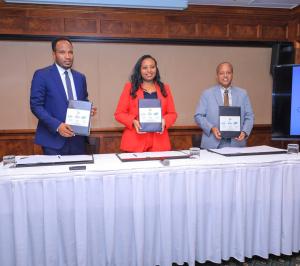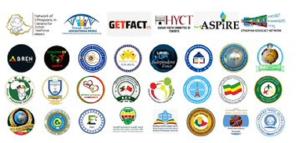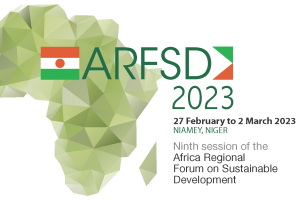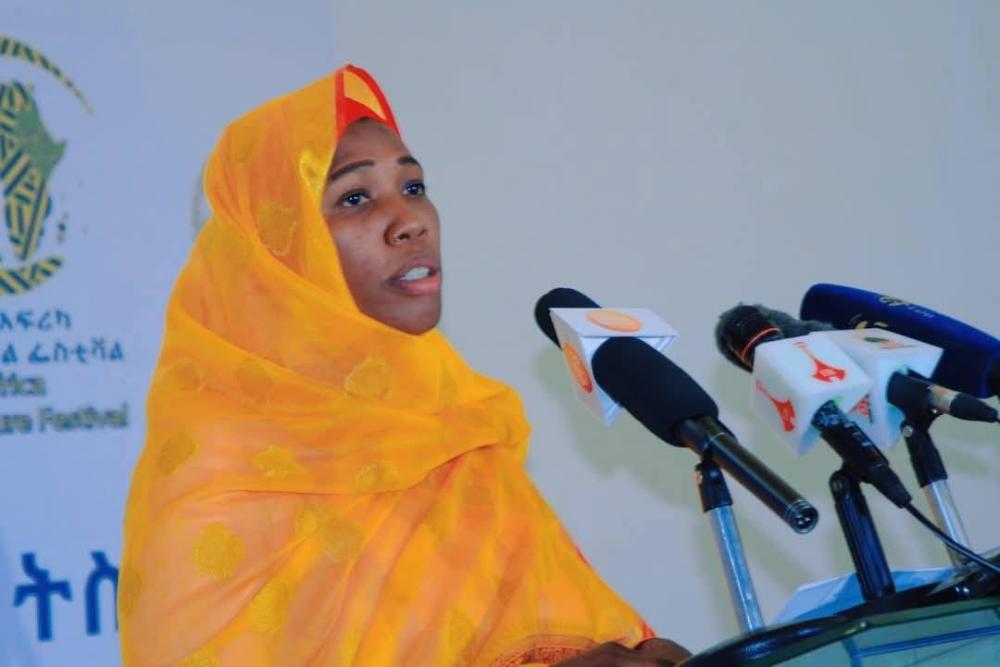ENA - ENA English
Headlines
Ethiopia Commences its Three-year PSP Membership
Apr 1, 2025 243
Addis Ababa, April 1, 2025 (ENA)-- Ethiopia has officially commenced its three-year tenure as a newly elected member of the African Union Peace and Security Council (AUPSC) at a welcoming flag ceremony held today at the AU Headquarters. Speaking at the welcoming event, Ambassador Rebecca Amuge Otengo, Chairperson of the PSC for the Month of April, expressed her confidence in the capability and experience of the newly elected members of the PSC to advance the peace and security of the continent. Ambassador Bankole Adeoye, Commissioner for Political Affairs, Peace and Security, on the other hand, commended the newly elected and re-elected members of the PSC and indicated that with the addition of the new members, the PSC will continue to be a formidable forum for conflict prevention and management on the continent. On the occasion, Ethiopia was represented by Ambassador Hirut Zemene, Permanent Representative of Ethiopia to the AU and UNECA. It is to be recalled that the 46th Ordinary Session of the Executive Council held on 12 February 2025 elected four new members of the PSC. Accordingly, Ethiopia and Eswatini were elected as new members of the PSC, while Nigeria and Cameroon were re-elected for another term representing their respective regions. Ethiopia will work in close collaboration with other Members of the PSC, and leverage its extensive experience in conflict resolution, peace-making and peace-building at regional, continental and global levels for the promotion of peace and stability across the continent, according to Foreign Affairs Ministry.
FM Gedion Meets with UN Under-Secretary-General and Special Envoy for Digital and Emerging Technologies
Apr 1, 2025 270
Addis Ababa, April 1, 2025 (ENA)--Minister of Foreign Affairs, Gedion Timothewos received the United Nations Under-Secretary-General and Special Envoy for Digital and Emerging Technologies, Amandeep Singh Gill, at his office. On the occasion, Gill called on Ethiopia to be part of the new UN Initiative on Digitalization and Artificial Intelligence (AI) and ensure its active role. The new UN Initiative on Digital and Emerging Technologies was established to develop advanced governance framework and build capacity in the field of artificial intelligence. Foreign Minister Gedion highlighted that Prime Minister Abiy Ahmed has already initiated the establishment of institutions such as the Ethiopian Artificial Intelligence Institute to emphasize the importance of digitalization for national development. The Minister also affirmed Ethiopia's commitment to actively engaging as a key member of the newly launched initiative.
Ethiopia Undertakes Diplomatic Reforms to Uphold National Interests: HPR
Apr 1, 2025 261
Addis Ababa, April 1, 2025 (ENA) --- House of People’s Representatives (HPR) has expressed that Ethiopia has been undertaking diplomatic reforms to uphold national interests. Fetih Mahadi, Deputy Chairperson of Foreign Relations and Peace Affairs Standing Committee at HPR, noted that Ethiopia has implemented a series of diplomatic reforms in recent years that prioritize national interests and benefit its citizens. Speaking to ENA, Fetih highlighted that these reforms span several areas, including operational, organizational, technological, and human resource development policies and guidelines. The reforms have led to the creation of an organizational structure that enhances the country's reputation on the global stage and Ethiopia has devoted in resolving African problems through African solutions, he added, citing the Pretoria and Ankara agreements as examples of the country’s mature diplomacy. According to the deputy chairperson, Ethiopia's foreign policy is designed not only to benefit the country but also its neighboring nations and pointed to the high level of diplomatic success achieved in strengthening both bilateral and multilateral relations with neighboring countries. Additionally, Ethiopia's active participation in multilateral forums has contributed to its recent membership in BRICS, he pointed out. The Deputy Chairperson further mentioned that Ethiopia has faced external pressure for years to refrain from utilizing its resources. However, through effective diplomacy, the country has been able to counter this pressure and assert its interests. Specifically, he cited Ethiopia's diplomatic efforts in securing the Nile Basin Cooperation Framework, where the country was able to advocate for its national interests, and concerning access to a sea outlet. Ambassador Dina Mufti, a member of the HPR Foreign Relations and Peace Affairs Standing Committee, on his part added that Ethiopia’s diplomatic efforts have led to significant successes, particularly in strengthening bilateral cooperation with neighboring countries and in matters related to the Grand Ethiopian Renaissance Dam (GERD).
Production-driven Trade Strategy Enables Ethiopia to Boost Export Destinations, Competitiveness
Apr 1, 2025 295
Addis Ababa, April 1, 2025 (ENA) --- Ethiopia has achieved tangible results in enhancing its export destinations and competitiveness by implementing a production-driven trade strategy, Trade and Regional Integration Minister Kassahun Gofe told ENA. Ethiopia will play its leading role in strengthening intra-African trade by commencing soon a pilot African Continental Free Trade Area (AfCFTA) project in selected countries, he added. The minister told ENA that Ethiopia has achieved significant results in export diversification and competitiveness. Recalling that Ethiopia's export revenue was 2.6 billion USD in 2017/8, Kasahun stated that 4.5 billion USD has been earned in the first eight months of 2024/5 alone. The activities carried out in export productivity, implementation of the macro-economic reform policy and free-floating exchange rate systems have enabled significant changes, he pointed out. Although Ethiopia's potential is much greater than this, the minister stressed that the promising results being registered are encouraging taking into consideration the red tape that constrained the trade sector in the past, he elaborated. The minister, who recalled the annual export revenue from coffee production to be 700 million USD, stated that over 2 billion USD is expected this Ethiopian fiscal year. Endeavors carried out in developing and producing quality coffee plants in connection with the Green Legacy Initiative have made a significant contribution to its competitiveness. Kasahun emphasized that Ethiopia's export competitiveness is growing as a result of its pursuing a production-driven trade strategy. According to him, Ethiopia's export revenue is low in terms of its Gross Domestic Product, and the aim of joining AfCFTA and the World Trade Organization is to expand trade destinations. For him, it is necessary to strive towards making Ethiopia's export market predictable and competitive. The minister revealed that Ethiopia has finalized preparations to start the pilot AfCFTA project. He believes that AfCFTA is promising for Ethiopia because of the large-scale production of coffee, pulses, and other products.
Nation's Rising Floriculture, Favorable Business Climate Lauded
Apr 1, 2025 247
Addis Ababa, April 1, 2025 (ENA) --- Ethiopia is one of the very few countries that can produce flowers all year round, foreign firms heads noted. Agri Plast Kenya Limited Company Managing Director, Ertugrul Molulu, told ENA that Ethiopia is a very big country and the opportunities are also bigger than other countries. According to him, the highland alone is giving a lot of huge opportunities for the high quality agriculture productions. Compared to other countries, the logistics are also very good because here the air cargo and the others are supported by the government, Molulu said, adding that the cargo prices are much more convenient. The managing director believes that Ethiopia’s business will flourish in the years to come as the country and its population is very big with huge opportunities. Molulu also commended the Government of Ethiopia for supporting local farmers and international companies in creating a reliable business environment. With the population of about 120 million, the local demand is very high and export opportunities are very high, including the demand for expansion in the Middle East and the Gulf region, among others, the managing director elaborated. Derba Flowers and Mullo Farm Country Coordinator, Raphael Joly, said Ethiopia is one of the very few countries that has the possibility to produce flowers all year round, positioning it in a very favorable position. The flower industry, which started 20-25 years ago in Ethiopia, is developing quite well, he added. Joly noted that Ethiopia has a great potential in the flower industry and the macroeconomic reform being implemented by the government plays pivotal role. The country coordinator said Ethiopia has also a stronger advantage in terms of logistics, compared to other countries in the region. Moreover, the Government of Ethiopia is taking measures to improve the business climate in the country, and due attention is also given to export products in the country, of which horticulture is one of them. The floriculture sub-sector is among the top 3 forex earners in the country. In the last 8 months alone, the country has earned 366 million USD from the horticulture sub-sector.
Politics
Ethiopia Commences its Three-year PSP Membership
Apr 1, 2025 243
Addis Ababa, April 1, 2025 (ENA)-- Ethiopia has officially commenced its three-year tenure as a newly elected member of the African Union Peace and Security Council (AUPSC) at a welcoming flag ceremony held today at the AU Headquarters. Speaking at the welcoming event, Ambassador Rebecca Amuge Otengo, Chairperson of the PSC for the Month of April, expressed her confidence in the capability and experience of the newly elected members of the PSC to advance the peace and security of the continent. Ambassador Bankole Adeoye, Commissioner for Political Affairs, Peace and Security, on the other hand, commended the newly elected and re-elected members of the PSC and indicated that with the addition of the new members, the PSC will continue to be a formidable forum for conflict prevention and management on the continent. On the occasion, Ethiopia was represented by Ambassador Hirut Zemene, Permanent Representative of Ethiopia to the AU and UNECA. It is to be recalled that the 46th Ordinary Session of the Executive Council held on 12 February 2025 elected four new members of the PSC. Accordingly, Ethiopia and Eswatini were elected as new members of the PSC, while Nigeria and Cameroon were re-elected for another term representing their respective regions. Ethiopia will work in close collaboration with other Members of the PSC, and leverage its extensive experience in conflict resolution, peace-making and peace-building at regional, continental and global levels for the promotion of peace and stability across the continent, according to Foreign Affairs Ministry.
Ethiopia Undertakes Diplomatic Reforms to Uphold National Interests: HPR
Apr 1, 2025 261
Addis Ababa, April 1, 2025 (ENA) --- House of People’s Representatives (HPR) has expressed that Ethiopia has been undertaking diplomatic reforms to uphold national interests. Fetih Mahadi, Deputy Chairperson of Foreign Relations and Peace Affairs Standing Committee at HPR, noted that Ethiopia has implemented a series of diplomatic reforms in recent years that prioritize national interests and benefit its citizens. Speaking to ENA, Fetih highlighted that these reforms span several areas, including operational, organizational, technological, and human resource development policies and guidelines. The reforms have led to the creation of an organizational structure that enhances the country's reputation on the global stage and Ethiopia has devoted in resolving African problems through African solutions, he added, citing the Pretoria and Ankara agreements as examples of the country’s mature diplomacy. According to the deputy chairperson, Ethiopia's foreign policy is designed not only to benefit the country but also its neighboring nations and pointed to the high level of diplomatic success achieved in strengthening both bilateral and multilateral relations with neighboring countries. Additionally, Ethiopia's active participation in multilateral forums has contributed to its recent membership in BRICS, he pointed out. The Deputy Chairperson further mentioned that Ethiopia has faced external pressure for years to refrain from utilizing its resources. However, through effective diplomacy, the country has been able to counter this pressure and assert its interests. Specifically, he cited Ethiopia's diplomatic efforts in securing the Nile Basin Cooperation Framework, where the country was able to advocate for its national interests, and concerning access to a sea outlet. Ambassador Dina Mufti, a member of the HPR Foreign Relations and Peace Affairs Standing Committee, on his part added that Ethiopia’s diplomatic efforts have led to significant successes, particularly in strengthening bilateral cooperation with neighboring countries and in matters related to the Grand Ethiopian Renaissance Dam (GERD).
Canada-Ethiopia Relations Growing Significantly Across Diplomatic, Economic Spheres
Apr 1, 2025 525
Addis Ababa, April 1, 2025 (ENA) ---- Canada's relationship with Ethiopia has been growing significantly, with increasing diplomatic, economic, and people-to-people ties, Canada’s Ambassador to Ethiopia, Joshua Tabah said. In a recent interview with ENA, Ambassador Tabah stated that the relationship is "mature, robust, and expanding" and has been built on strong people-to-people connections since diplomatic ties were first established in 1965. There are now over 50,000 Ethiopians living in Canada and around 5,000 Canadians in Ethiopia, further strengthening bilateral relations. A major sign of the growing relationship is the increase in direct flights between Addis Ababa and Toronto, with flights now operating daily, which facilitates easier connections between the two countries. “Bilateral relationship between Canada and Ethiopia is mature, robust and expanding. We first established diplomatic relations in 1965 and we've been building on that relationship every year since, it is a multifaceted relationship. At its core, it's about people and strong People to People ties. From the beginning, we've also been an important partner to Ethiopia. In terms of international development cooperation, we have expanding trade and commercial relationships as well.” In terms of economic cooperation, Ambassador Tabah highlighted that Canada's annual development support to Ethiopia exceeds 200 million USD and focuses on areas such as gender equality, agricultural productivity, and humanitarian aid. He also noted significant investments, including those by Allied Gold, a Canadian company engaged in a major gold exploration project in the Benishangul-Gumuz region. Furthermore, Canada's relationship with Ethiopian Airlines is growing, with Canada supplying aircrafts, flight simulators, and even ice wine for the airline’s flights. Ethiopia's exports such as coffee, handicrafts, and garments are also increasingly reaching the Canadian market. Ambassador Tabah emphasized the importance of the Canadian Chamber of Commerce in Ethiopia, which will play a crucial role in advancing trade between the two countries. “Our development cooperation in Ethiopia is our largest bilateral development program, with around 200 million USD invested in support of Ethiopian priorities regarding gender equality, access to livelihoods, agricultural productivity, economic empowerment, and also humanitarian assistance." On the issue of food security and sustainable development, Canada has been actively involved in Ethiopia’s efforts to increase agricultural production and promote gender equality in agriculture. Ambassador Tabah mentioned that Canada is committed to supporting Ethiopia’s humanitarian needs, particularly in times of conflict or natural disasters. Looking beyond Ethiopia, Ambassador Tabah who is also accredited to Djibouti and Sudan spoke about Canada’s growing engagement with Africa as a whole, noting that Africa has been more important for Canada’s foreign policy, trade, and development goals. Canada has released its first strategy for engagement in Africa, which emphasizes a peer-to-peer relationship with individual African countries and institutions such as the African Union. In addition, Canada has been supporting peace and security initiatives in Africa, particularly through the African Union Commission, and is making significant investments in technology and climate solutions in countries like South Africa, Nigeria, and Kenya. Ambassador Tabah also highlighted Canada’s support for Ethiopia's Demobilization, Disarmament, and Reintegration (DDR) process, particularly in the Tigray region. He emphasized that peace is essential for economic prosperity, and that DDR efforts are key to promoting stability and social cohesion. Canada continues to support Ethiopia in its efforts to host over one million refugees from the Horn of Africa, providing both financial aid through to organizations like the World Food Program and UNHCR, and resettlement opportunities for refugees needing protection. Through these efforts, Canada aims to build a stronger, more dynamic partnership with Ethiopia and Africa, supporting the continent’s development and stability while advancing trade, peace, and sustainable development goals.
French Far-right Leader Marine Le Pen Found Guilty of Embezzling EU Funds
Mar 31, 2025 406
Addis Ababa, March 31, 2025 (ENA)—A French court has convicted French far-right leader Marine Le Pen of embezzling money from the European parliament. She was banned from running for public office for five years after being convicted on Monday of embezzlement, a political watershed that rules her out of the 2027 presidential race unless she can win an appeal. The French court’s ruling is considered as a catastrophic setback for Le Pen, the National Rally (RN) party chief who has long been one of the most prominent figures in the European far right. The politician had been also the front-runner in opinion polls for the 2027 contest. Le Pen's lawyer said she would appeal the verdict, but she will remain ineligible while she does and so could be ruled out of the 2027 presidential race. She was also sentenced to four years' imprisonment, with two to be served under house arrest and two suspended— and a 100,000 Euro (170,000 USD) fine. Le Pen, her National Rally party (RN) and some two dozen party figures were accused by prosecutors of diverting over 4.1 million Euros of European Parliament funds to pay staff working for the party in France. The defendants said the money was used legitimately and that the allegations incorporated too narrow a definition of what a parliamentary assistant does. Le Pen has accused the prosecutors of seeking her "political death", arguing the provisional execution request was "completely disproportionate". She and her allies allege a witch-hunt to keep the RN out of power, echoing claims made by US President Donald Trump over his legal woes.
Aviation Security Committee Convene to Discussion on Study Conducted on Current State of Industry
Mar 31, 2025 535
Addis Ababa, March 31, 2025 (ENA)- The Ethiopian National Civil Aviation Security Committee convened to discuss the current state of the industry at national, regional, and international levels, according to the National Intelligence and Security Service (NISS). NISS announced in a press release that Ethiopia's aviation security has garnered multiple affirmations regarding its dependability and adherence to international safety standards. Deputy Director General of NISS and Chairman of the committee, Sisay Tola said that although the industry has experienced a successful trajectory, it is crucial to exercise caution in protecting the competitiveness of Ethiopia's national carrier, Ethiopian Airlines, from national and regional security challenges, given the sector's unique and complex characteristics. Sisay stressed the necessity for heightened collaborative efforts among all stakeholders within the aviation sector, with a focus on strategic security matters. During a forum where participants assessed existing security measures against potential threats, vulnerabilities, and gaps, members of the Ethiopian National Civil Aviation Security Committee underscored the importance of maintaining the aviation industry's current growth trajectory. They emphasized the need for coordinated utilization of resources across all relevant institutions. Participants further highlighted the criticality of proactively addressing both internal and external security threats by conducting thorough analyses of national and regional conditions. This approach, they asserted, is essential for ensuring the continued safety and reliability of aviation operations. The forum participants also reaffirmed their commitment to strengthening collaborative endeavors aimed at safeguarding Ethiopian Airlines, a source of national and continental pride, the press release underscored. Furthermore, NISS indicated that a roadmap for the industry's future development, aligned with global advancements, will be formulated. The statement also noted that a directive has been issued for the continuous evaluation and management of the industry's current status.
AUC Chairperson to Deploy Panel of the Wise for South Sudan Mediation
Mar 31, 2025 744
Addis Ababa, March 31, 2025 (ENA)—African Union Commission (AUC) Chairperson, Mahmoud Youssouf Ali is dispatching a high-level delegation of the AU Panel of the Wise to Juba, South Sudan to engage with all the stakeholders to de-escalate tensions and promote dialogue. After cordial direct talks with President Salva Kiir of South Sudan, the Chairperson of the African Union Commission Mahmoud Youssouf Ali addressed the evolving political situation in South Sudan and the recent violence in Nasir. Expressing solidarity with the Government and people of South Sudan, the Chairperson reaffirmed the AU’s unwavering commitment to dialogue, reconciliation, and lasting peace, according to the Commission’s statement. To enhance mediation efforts and support the full implementation of the Revitalized Agreement on the Resolution of the Conflict in South Sudan (R-ARCSS), the Chairperson is dispatching a high-level delegation of the AU Panel of the Wise to Juba to engage with all the stakeholders to de-escalate tensions and promote dialogue. The African Union calls on all parties to uphold all the provisions of R-ARCSS and ensure its full implementation, the statement further noted. Accordingly, the AU remains actively engaged with regional and international partners, including IGAD, the EAC, and the United Nations, to support South Sudan’s transition to durable peace and democracy.
Ethiopia’s Quest for Access to Sea through Peaceful Means Acceptable: Israeli Ambassador
Mar 31, 2025 1756
Addis Ababa, March 31, 2025 (ENA) ---The quest for Ethiopia to access sea outlets through peaceful and diplomatic means is acceptance, Israeli Ambassador to Ethiopia, Abraham Negussie underscored. In an exclusive interview with ENA, Ambassador Abraham emphasized that Ethiopia's quest for sustainable sea outlet is essential and fundamentally significant to the country. Accordingly, the move Ethiopia has been making to obtain sea outlets based on peaceful and diplomatic means is acceptable, the ambassador added. In this regard, the approach the government follows to obtain sea outlets is essential to sustain the economic growth of the country with the largest population, he said. He expressed his hope that countries that are keen for justice will rightly address Ethiopia's demands for sea and emphasized that a country with a largest number of population should not be deprived of its right to access sea. Ambassador Abraham also stressed that access for sustainable sea outlet is critical to accommodate the growing economy of the country. Ethiopia’s pursuit of sea is essential to sustain to the growing economy of the country and benefits of the people, calling for solution, he stressed.
US AFRICOM Strikes ISIS Positions in Somalia
Mar 30, 2025 1831
Addis Ababa, March 30, 2025 (ENA)—US Africa Command (AFRICOM) has carried out strikes against Islamic State positions in Somalia, according to an official statement. AFRICOM reported on its website that the operation was conducted on March 29 in coordination with the Somali government. The strikes targeted Islamic State positions southeast of Bosaso in Somalia’s Puntland region, it was learned. “AFRICOM’s initial assessment is that multiple ISIS-Somalia operatives were killed and no civilians were harmed,” the statement revealed. The military statement indicated that the militants posed a threat to US forces. No additional details about the operation were provided. ISIS-Somalia has proved both its will and capability to attack U.S. and partner forces, AFRICOM further stated, adding that this group’s malicious efforts threaten U.S. security interests. “AFRICOM, alongside the Federal Government of Somalia and Somali Armed Forces, continues to take action to degrade ISIS-Somalia's ability to plan and conduct attacks that threaten the U.S. homeland, our forces, and our civilians abroad,” according to the statement.
Politics
Ethiopia Commences its Three-year PSP Membership
Apr 1, 2025 243
Addis Ababa, April 1, 2025 (ENA)-- Ethiopia has officially commenced its three-year tenure as a newly elected member of the African Union Peace and Security Council (AUPSC) at a welcoming flag ceremony held today at the AU Headquarters. Speaking at the welcoming event, Ambassador Rebecca Amuge Otengo, Chairperson of the PSC for the Month of April, expressed her confidence in the capability and experience of the newly elected members of the PSC to advance the peace and security of the continent. Ambassador Bankole Adeoye, Commissioner for Political Affairs, Peace and Security, on the other hand, commended the newly elected and re-elected members of the PSC and indicated that with the addition of the new members, the PSC will continue to be a formidable forum for conflict prevention and management on the continent. On the occasion, Ethiopia was represented by Ambassador Hirut Zemene, Permanent Representative of Ethiopia to the AU and UNECA. It is to be recalled that the 46th Ordinary Session of the Executive Council held on 12 February 2025 elected four new members of the PSC. Accordingly, Ethiopia and Eswatini were elected as new members of the PSC, while Nigeria and Cameroon were re-elected for another term representing their respective regions. Ethiopia will work in close collaboration with other Members of the PSC, and leverage its extensive experience in conflict resolution, peace-making and peace-building at regional, continental and global levels for the promotion of peace and stability across the continent, according to Foreign Affairs Ministry.
Ethiopia Undertakes Diplomatic Reforms to Uphold National Interests: HPR
Apr 1, 2025 261
Addis Ababa, April 1, 2025 (ENA) --- House of People’s Representatives (HPR) has expressed that Ethiopia has been undertaking diplomatic reforms to uphold national interests. Fetih Mahadi, Deputy Chairperson of Foreign Relations and Peace Affairs Standing Committee at HPR, noted that Ethiopia has implemented a series of diplomatic reforms in recent years that prioritize national interests and benefit its citizens. Speaking to ENA, Fetih highlighted that these reforms span several areas, including operational, organizational, technological, and human resource development policies and guidelines. The reforms have led to the creation of an organizational structure that enhances the country's reputation on the global stage and Ethiopia has devoted in resolving African problems through African solutions, he added, citing the Pretoria and Ankara agreements as examples of the country’s mature diplomacy. According to the deputy chairperson, Ethiopia's foreign policy is designed not only to benefit the country but also its neighboring nations and pointed to the high level of diplomatic success achieved in strengthening both bilateral and multilateral relations with neighboring countries. Additionally, Ethiopia's active participation in multilateral forums has contributed to its recent membership in BRICS, he pointed out. The Deputy Chairperson further mentioned that Ethiopia has faced external pressure for years to refrain from utilizing its resources. However, through effective diplomacy, the country has been able to counter this pressure and assert its interests. Specifically, he cited Ethiopia's diplomatic efforts in securing the Nile Basin Cooperation Framework, where the country was able to advocate for its national interests, and concerning access to a sea outlet. Ambassador Dina Mufti, a member of the HPR Foreign Relations and Peace Affairs Standing Committee, on his part added that Ethiopia’s diplomatic efforts have led to significant successes, particularly in strengthening bilateral cooperation with neighboring countries and in matters related to the Grand Ethiopian Renaissance Dam (GERD).
Canada-Ethiopia Relations Growing Significantly Across Diplomatic, Economic Spheres
Apr 1, 2025 525
Addis Ababa, April 1, 2025 (ENA) ---- Canada's relationship with Ethiopia has been growing significantly, with increasing diplomatic, economic, and people-to-people ties, Canada’s Ambassador to Ethiopia, Joshua Tabah said. In a recent interview with ENA, Ambassador Tabah stated that the relationship is "mature, robust, and expanding" and has been built on strong people-to-people connections since diplomatic ties were first established in 1965. There are now over 50,000 Ethiopians living in Canada and around 5,000 Canadians in Ethiopia, further strengthening bilateral relations. A major sign of the growing relationship is the increase in direct flights between Addis Ababa and Toronto, with flights now operating daily, which facilitates easier connections between the two countries. “Bilateral relationship between Canada and Ethiopia is mature, robust and expanding. We first established diplomatic relations in 1965 and we've been building on that relationship every year since, it is a multifaceted relationship. At its core, it's about people and strong People to People ties. From the beginning, we've also been an important partner to Ethiopia. In terms of international development cooperation, we have expanding trade and commercial relationships as well.” In terms of economic cooperation, Ambassador Tabah highlighted that Canada's annual development support to Ethiopia exceeds 200 million USD and focuses on areas such as gender equality, agricultural productivity, and humanitarian aid. He also noted significant investments, including those by Allied Gold, a Canadian company engaged in a major gold exploration project in the Benishangul-Gumuz region. Furthermore, Canada's relationship with Ethiopian Airlines is growing, with Canada supplying aircrafts, flight simulators, and even ice wine for the airline’s flights. Ethiopia's exports such as coffee, handicrafts, and garments are also increasingly reaching the Canadian market. Ambassador Tabah emphasized the importance of the Canadian Chamber of Commerce in Ethiopia, which will play a crucial role in advancing trade between the two countries. “Our development cooperation in Ethiopia is our largest bilateral development program, with around 200 million USD invested in support of Ethiopian priorities regarding gender equality, access to livelihoods, agricultural productivity, economic empowerment, and also humanitarian assistance." On the issue of food security and sustainable development, Canada has been actively involved in Ethiopia’s efforts to increase agricultural production and promote gender equality in agriculture. Ambassador Tabah mentioned that Canada is committed to supporting Ethiopia’s humanitarian needs, particularly in times of conflict or natural disasters. Looking beyond Ethiopia, Ambassador Tabah who is also accredited to Djibouti and Sudan spoke about Canada’s growing engagement with Africa as a whole, noting that Africa has been more important for Canada’s foreign policy, trade, and development goals. Canada has released its first strategy for engagement in Africa, which emphasizes a peer-to-peer relationship with individual African countries and institutions such as the African Union. In addition, Canada has been supporting peace and security initiatives in Africa, particularly through the African Union Commission, and is making significant investments in technology and climate solutions in countries like South Africa, Nigeria, and Kenya. Ambassador Tabah also highlighted Canada’s support for Ethiopia's Demobilization, Disarmament, and Reintegration (DDR) process, particularly in the Tigray region. He emphasized that peace is essential for economic prosperity, and that DDR efforts are key to promoting stability and social cohesion. Canada continues to support Ethiopia in its efforts to host over one million refugees from the Horn of Africa, providing both financial aid through to organizations like the World Food Program and UNHCR, and resettlement opportunities for refugees needing protection. Through these efforts, Canada aims to build a stronger, more dynamic partnership with Ethiopia and Africa, supporting the continent’s development and stability while advancing trade, peace, and sustainable development goals.
French Far-right Leader Marine Le Pen Found Guilty of Embezzling EU Funds
Mar 31, 2025 406
Addis Ababa, March 31, 2025 (ENA)—A French court has convicted French far-right leader Marine Le Pen of embezzling money from the European parliament. She was banned from running for public office for five years after being convicted on Monday of embezzlement, a political watershed that rules her out of the 2027 presidential race unless she can win an appeal. The French court’s ruling is considered as a catastrophic setback for Le Pen, the National Rally (RN) party chief who has long been one of the most prominent figures in the European far right. The politician had been also the front-runner in opinion polls for the 2027 contest. Le Pen's lawyer said she would appeal the verdict, but she will remain ineligible while she does and so could be ruled out of the 2027 presidential race. She was also sentenced to four years' imprisonment, with two to be served under house arrest and two suspended— and a 100,000 Euro (170,000 USD) fine. Le Pen, her National Rally party (RN) and some two dozen party figures were accused by prosecutors of diverting over 4.1 million Euros of European Parliament funds to pay staff working for the party in France. The defendants said the money was used legitimately and that the allegations incorporated too narrow a definition of what a parliamentary assistant does. Le Pen has accused the prosecutors of seeking her "political death", arguing the provisional execution request was "completely disproportionate". She and her allies allege a witch-hunt to keep the RN out of power, echoing claims made by US President Donald Trump over his legal woes.
Aviation Security Committee Convene to Discussion on Study Conducted on Current State of Industry
Mar 31, 2025 535
Addis Ababa, March 31, 2025 (ENA)- The Ethiopian National Civil Aviation Security Committee convened to discuss the current state of the industry at national, regional, and international levels, according to the National Intelligence and Security Service (NISS). NISS announced in a press release that Ethiopia's aviation security has garnered multiple affirmations regarding its dependability and adherence to international safety standards. Deputy Director General of NISS and Chairman of the committee, Sisay Tola said that although the industry has experienced a successful trajectory, it is crucial to exercise caution in protecting the competitiveness of Ethiopia's national carrier, Ethiopian Airlines, from national and regional security challenges, given the sector's unique and complex characteristics. Sisay stressed the necessity for heightened collaborative efforts among all stakeholders within the aviation sector, with a focus on strategic security matters. During a forum where participants assessed existing security measures against potential threats, vulnerabilities, and gaps, members of the Ethiopian National Civil Aviation Security Committee underscored the importance of maintaining the aviation industry's current growth trajectory. They emphasized the need for coordinated utilization of resources across all relevant institutions. Participants further highlighted the criticality of proactively addressing both internal and external security threats by conducting thorough analyses of national and regional conditions. This approach, they asserted, is essential for ensuring the continued safety and reliability of aviation operations. The forum participants also reaffirmed their commitment to strengthening collaborative endeavors aimed at safeguarding Ethiopian Airlines, a source of national and continental pride, the press release underscored. Furthermore, NISS indicated that a roadmap for the industry's future development, aligned with global advancements, will be formulated. The statement also noted that a directive has been issued for the continuous evaluation and management of the industry's current status.
AUC Chairperson to Deploy Panel of the Wise for South Sudan Mediation
Mar 31, 2025 744
Addis Ababa, March 31, 2025 (ENA)—African Union Commission (AUC) Chairperson, Mahmoud Youssouf Ali is dispatching a high-level delegation of the AU Panel of the Wise to Juba, South Sudan to engage with all the stakeholders to de-escalate tensions and promote dialogue. After cordial direct talks with President Salva Kiir of South Sudan, the Chairperson of the African Union Commission Mahmoud Youssouf Ali addressed the evolving political situation in South Sudan and the recent violence in Nasir. Expressing solidarity with the Government and people of South Sudan, the Chairperson reaffirmed the AU’s unwavering commitment to dialogue, reconciliation, and lasting peace, according to the Commission’s statement. To enhance mediation efforts and support the full implementation of the Revitalized Agreement on the Resolution of the Conflict in South Sudan (R-ARCSS), the Chairperson is dispatching a high-level delegation of the AU Panel of the Wise to Juba to engage with all the stakeholders to de-escalate tensions and promote dialogue. The African Union calls on all parties to uphold all the provisions of R-ARCSS and ensure its full implementation, the statement further noted. Accordingly, the AU remains actively engaged with regional and international partners, including IGAD, the EAC, and the United Nations, to support South Sudan’s transition to durable peace and democracy.
Ethiopia’s Quest for Access to Sea through Peaceful Means Acceptable: Israeli Ambassador
Mar 31, 2025 1756
Addis Ababa, March 31, 2025 (ENA) ---The quest for Ethiopia to access sea outlets through peaceful and diplomatic means is acceptance, Israeli Ambassador to Ethiopia, Abraham Negussie underscored. In an exclusive interview with ENA, Ambassador Abraham emphasized that Ethiopia's quest for sustainable sea outlet is essential and fundamentally significant to the country. Accordingly, the move Ethiopia has been making to obtain sea outlets based on peaceful and diplomatic means is acceptable, the ambassador added. In this regard, the approach the government follows to obtain sea outlets is essential to sustain the economic growth of the country with the largest population, he said. He expressed his hope that countries that are keen for justice will rightly address Ethiopia's demands for sea and emphasized that a country with a largest number of population should not be deprived of its right to access sea. Ambassador Abraham also stressed that access for sustainable sea outlet is critical to accommodate the growing economy of the country. Ethiopia’s pursuit of sea is essential to sustain to the growing economy of the country and benefits of the people, calling for solution, he stressed.
US AFRICOM Strikes ISIS Positions in Somalia
Mar 30, 2025 1831
Addis Ababa, March 30, 2025 (ENA)—US Africa Command (AFRICOM) has carried out strikes against Islamic State positions in Somalia, according to an official statement. AFRICOM reported on its website that the operation was conducted on March 29 in coordination with the Somali government. The strikes targeted Islamic State positions southeast of Bosaso in Somalia’s Puntland region, it was learned. “AFRICOM’s initial assessment is that multiple ISIS-Somalia operatives were killed and no civilians were harmed,” the statement revealed. The military statement indicated that the militants posed a threat to US forces. No additional details about the operation were provided. ISIS-Somalia has proved both its will and capability to attack U.S. and partner forces, AFRICOM further stated, adding that this group’s malicious efforts threaten U.S. security interests. “AFRICOM, alongside the Federal Government of Somalia and Somali Armed Forces, continues to take action to degrade ISIS-Somalia's ability to plan and conduct attacks that threaten the U.S. homeland, our forces, and our civilians abroad,” according to the statement.
Social
Adey Ababa International Stadium Phase II Construction Contract Signed
Mar 31, 2025 1180
Addis Ababa, March 31, 2025 (ENA) -- A contract agreement for the completion of the Adey Ababa International Stadium Phase II Lot 2 remaining works was signed today between Ethiopia's Ministry of Culture and Sports and China Communications Construction Company LTD (CCCC). Minister of Culture and Sports, Shewit Shanka, and Xin Bin, Deputy General Manager of CCCC has signed the contract today in Addis Ababa for the construction of the remaining works of Adey Abeba stadium. Minister Shewit, during her address, highlighted the progress made in sports development over the past seven years. She emphasized that the contract agreement is a crucial step towards finalizing the Adey Abeba International Stadium project. "Through the diplomatic efforts of the Prime Minister, we secured 57 million USD from the Abu Dhabi government seven years ago, which has enabled significant advancement in Phase II Lot 1 construction," Shewit stated. The contract, valued nearly at 139 million USD, will facilitate the continuation of construction for Phase II Lots 2 and 3. Upon completion, the stadium is designed to meet international standards set by CAF and FIFA, allowing it to host major international sporting events. " This agreement marks a significant victory for the development of sports in Ethiopia," Minister Shewit added. Xin Bin, Deputy General Manager of CCCC, expressed his company's commitment to delivering the project on schedule. "With over 20 years of experience in Ethiopia, we recognize the importance of this world-class project. We pledge to utilize our resources and expertise to ensure its timely completion," he said. General Manager of MH Engineering and advisor of the project, Mesele Haile, provided detailed insights into the project's scope. He detailed the scope of work left to complete, including; finishing work left over from phase 1, and the very complex roof construction, which carries a large percentage of the current budget. The stadium's total ground area, and facility specifications will enable it to comply with world athletic standards. It is expected that the stadium will be completed within two years. According to him, the stadium is a world class venue that meets any standards including FIFA,CAF and World Athletics. The project includes Phase 2, Lots 2 and 3, encompassing FIFA-grade roofing, cutting-edge technology installations, and premium spectator seating. The completed stadium will feature 1,200 restrooms, 800 handwashing stations, comprehensive field work, and advanced roofing and technology systems. The completion of the Adey Ababa International Stadium is expected to create a prominent venue for sports and entertainment within Ethiopia, contributing significantly to the nation's sporting landscape.
Experts Urge Faster Ratification of AU Free Movement Protocol
Mar 31, 2025 830
Addis Ababa, March 31, 2025 (ENA) ---- Government officials, migration experts, diaspora representatives, private sector actors, civil society, and youth leaders gathered in Mombasa to press for concrete progress on ratifying the African Union’s Free Movement of Persons Protocol. The two-day meeting, jointly convened by the UN Economic Commission for Africa (ECA) and the African Union Commission (AUC), brought together stakeholders to review and validate a report titled Enhancing Free Movement of Persons and Pathways for Labour Mobility and Skills Portability in Ghana, Kenya, and Zambia. The project forms part of a wider effort to reshape the narrative around migration in Africa and remove existing mobility barriers, with funding support from the Government of Italy. “This report stems from a joint ECA-AUC effort launched in 2023 to challenge the dominant crisis-driven narrative around African migration,” said Francis Ikome, Chief of the Regional Integration Section at ECA. “Globally, migration is often viewed as a problem. But within Africa, it is a driver of opportunity.” Referencing ECOWAS, Ikome noted that “even with recent setbacks in the Sahel region, ECOWAS has demonstrated how integration can work, not just in the movement of goods, but of people. It proves that concerns about free movement, while legitimate, should not stall progress.” Head of Humanitarian Affairs at the AUC, Rita Amukhobu echoed the message, highlighting that lessons from regional blocs are informing AU’s work. “We continue to rely on regional communities as building blocks. They’ve walked this path before. We’re counting on countries like those featured in this report - Ghana, Kenya, and Zambia - to lead by example,” she said. Amukhobu emphasized that the AUC “continues to work hand in hand with member states and with ECA, our strong partner, toward getting this protocol ratified.” Simon Asare of the Ghana Immigration Service pointed to real-world experience: “ECOWAS has already moved beyond entry rights to include residence and establishment. Nationals from the region are living and working freely in Ghana. Some even receive citizenship.” The workshop took place as Ghana rolls out visa-free entry for all African nationals, Kenya implements a new e-Travel Authorization (ETA) system, and Zambia expands its visa liberalization measures. All three countries have signed the AfCFTA and are developing strategies to align trade and mobility frameworks. Ikome stressed the symbolic weight of progress by these three countries: “If Ghana, Kenya, and Zambia take these steps, they could serve as powerful accelerators. These nations are not only strategically placed but carry deep historical significance. Their founding fathers were champions of Pan-Africanism and the integration agenda. Their leadership today can inspire a continent-wide shift.”
Nationwide Celebrations Mark 1446th Eid al-Fitr in Ethiopia
Mar 30, 2025 1647
Addis Ababa, March 30, 2025 (ENA)—Muslims across Ethiopia are joyously celebrating the 1446th Eid al-Fitr with prayers, religious ceremonies, and expressions of unity, marking the end of the holy month of Ramadan. In the capital, Addis Ababa, thousands of worshippers gathered early at the iconic Addis Ababa Stadium for the Eid prayers. The stadium was filled with a peaceful and festive atmosphere as Muslims of all ages prayed together, embodying the values of Ramadan that includes fasting, mercy, charity, and compassion. Participants whom ENA approached shared heartfelt reflections on the lessons learned during Ramadan, recounting stories of community support and reaffirming their commitment to helping the vulnerable during the Eid. In Jinka city of Southern Ethiopia region, a large gathering took place at the former airport, uniting local worshippers and dignitaries. Arba Minch celebrated at the Ersamo Memorial Stadium, while Hosanna hosted a major event at its own stadium. In Hosanna, Imam Girma Muzei, Chief Chairman of the Hadiya Zone Islamic Affairs High Council, led the prayers and participated in the community's celebration. The Amhara region also celebrated Eid al-Fitr with a strong sense of unity. In Bahir Dar, Sheikh Jawhar Mohammed, President of the Regional Islamic Affairs High Council, joined other religious leaders and citizens for the occasion. Gondar's Fasilides Stadium hosted a packed celebration, with the city's first deputy mayor in attendance. Dessie and Woldiya also held celebrations, showcasing widespread Muslim participation in the region. In the eastern and southern regions, Harar’s Imam Ahmed Stadium hosted early Eid celebrations, with local Islamic leaders and worshippers joining in. In Dire Dawa, the Eid field saw prayers attended by the Deputy Mayor and other officials, emphasizing the city’s focus on community. Semera and Logia also hosted regional leaders, including Afar Regional State Chief Administrator Awel Arba, who took part in the celebrations, reinforcing the message of national unity. Jigjiga, Gambella, and Jimma also held vibrant Eid celebrations. This year’s Eid al-Fitr in Ethiopia served as a powerful reminder of community, unity, and compassion.
Eid Mubarak 2025: Muslims around the World Celebrating Eid al Fitr
Mar 30, 2025 2552
Addis Ababa, March 30, 2025 (ENA)—Muslims around the world are bidding farewell to the Islamic holy month of Ramadan and have started celebrating the holiday of Eid al-Fitr. Ethiopian Muslims across the country are also celebrating Eid al-Fitr, marking the end of Ramadan. Eid is typically greeted with joy and excitement and is marked with congregational prayers and festivities that usually include family visits, gatherings, outings and new clothes. With the sighting of the new moon in Saudi Arabia and neighbouring countries yesterday, the first day of Eid is being celebrated today 30th March 2025. Other countries follow their own moon sightings, and those that began fasting on March 2 will announce tomorrow night whether Eid will fall on Monday, March 31. Eid al-Fitr, the “festival of breaking the fast”, is celebrated at the end of the fasting month of Ramadan by Muslims worldwide. There are about 1.9 billion Muslims worldwide, approximately 25 percent of the world’s population. Indonesia has the world’s highest Muslim population, with some 240 million Muslims living in the country. Pakistan is second with about 225 million Muslims, followed by India (211 million), Bangladesh (155 million), and Nigeria (111 million). Traditionally, Eid is celebrated for three days as an official holiday in Muslim-majority countries. However, the number of holiday days varies by country. Muslims begin Eid celebrations by attending a prayer service shortly after dawn, followed by a short sermon. The day is spent visiting relatives and neighbours, accepting sweets and extending Eid greetings as they move around from house to house. The most popular greeting is “Eid mubarak” (Blessed Eid) or “Eid sa’id” (Happy Eid). Eid greetings also vary depending on the country and language. When is #Eid al Fitr? Islam follows a lunar calendar and so Ramadan and Eid cycle through the seasons. This year, the first day of Eid al-Fitr is expected to be on or around March 30; the exact date may vary among countries and Muslim communities. What are some common Eid #greetings? Eid Mubarak, or Blessed Eid, and Happy Eid.
Economy
Production-driven Trade Strategy Enables Ethiopia to Boost Export Destinations, Competitiveness
Apr 1, 2025 295
Addis Ababa, April 1, 2025 (ENA) --- Ethiopia has achieved tangible results in enhancing its export destinations and competitiveness by implementing a production-driven trade strategy, Trade and Regional Integration Minister Kassahun Gofe told ENA. Ethiopia will play its leading role in strengthening intra-African trade by commencing soon a pilot African Continental Free Trade Area (AfCFTA) project in selected countries, he added. The minister told ENA that Ethiopia has achieved significant results in export diversification and competitiveness. Recalling that Ethiopia's export revenue was 2.6 billion USD in 2017/8, Kasahun stated that 4.5 billion USD has been earned in the first eight months of 2024/5 alone. The activities carried out in export productivity, implementation of the macro-economic reform policy and free-floating exchange rate systems have enabled significant changes, he pointed out. Although Ethiopia's potential is much greater than this, the minister stressed that the promising results being registered are encouraging taking into consideration the red tape that constrained the trade sector in the past, he elaborated. The minister, who recalled the annual export revenue from coffee production to be 700 million USD, stated that over 2 billion USD is expected this Ethiopian fiscal year. Endeavors carried out in developing and producing quality coffee plants in connection with the Green Legacy Initiative have made a significant contribution to its competitiveness. Kasahun emphasized that Ethiopia's export competitiveness is growing as a result of its pursuing a production-driven trade strategy. According to him, Ethiopia's export revenue is low in terms of its Gross Domestic Product, and the aim of joining AfCFTA and the World Trade Organization is to expand trade destinations. For him, it is necessary to strive towards making Ethiopia's export market predictable and competitive. The minister revealed that Ethiopia has finalized preparations to start the pilot AfCFTA project. He believes that AfCFTA is promising for Ethiopia because of the large-scale production of coffee, pulses, and other products.
Nation's Rising Floriculture, Favorable Business Climate Lauded
Apr 1, 2025 247
Addis Ababa, April 1, 2025 (ENA) --- Ethiopia is one of the very few countries that can produce flowers all year round, foreign firms heads noted. Agri Plast Kenya Limited Company Managing Director, Ertugrul Molulu, told ENA that Ethiopia is a very big country and the opportunities are also bigger than other countries. According to him, the highland alone is giving a lot of huge opportunities for the high quality agriculture productions. Compared to other countries, the logistics are also very good because here the air cargo and the others are supported by the government, Molulu said, adding that the cargo prices are much more convenient. The managing director believes that Ethiopia’s business will flourish in the years to come as the country and its population is very big with huge opportunities. Molulu also commended the Government of Ethiopia for supporting local farmers and international companies in creating a reliable business environment. With the population of about 120 million, the local demand is very high and export opportunities are very high, including the demand for expansion in the Middle East and the Gulf region, among others, the managing director elaborated. Derba Flowers and Mullo Farm Country Coordinator, Raphael Joly, said Ethiopia is one of the very few countries that has the possibility to produce flowers all year round, positioning it in a very favorable position. The flower industry, which started 20-25 years ago in Ethiopia, is developing quite well, he added. Joly noted that Ethiopia has a great potential in the flower industry and the macroeconomic reform being implemented by the government plays pivotal role. The country coordinator said Ethiopia has also a stronger advantage in terms of logistics, compared to other countries in the region. Moreover, the Government of Ethiopia is taking measures to improve the business climate in the country, and due attention is also given to export products in the country, of which horticulture is one of them. The floriculture sub-sector is among the top 3 forex earners in the country. In the last 8 months alone, the country has earned 366 million USD from the horticulture sub-sector.
Electric Buses Commence Operations in Addis Ababa
Apr 1, 2025 228
Addis Ababa, April 1, 2025 (ENA) --- Addis Ababa Mayor Adanech Abiebie has launched the operation of 100 electric buses, signifying the administration's renewed dedication to serve inhabitants. The fleet of electric buses, aimed at alleviating the city's transportation challenges, are environmentally friendly, capable of transporting a large number of passengers, and modern. Furthermore, the buses are designed to operate on dedicated lanes, ensuring faster service and reducing fuel costs, it was learned. During the launching ceremony, Mayor Adanech emphasized that the administration's procurement and deployment of the electric buses are intended to mitigate the public's transportation difficulties. The buses will significantly contribute to the government's efforts to combat climate change and reduce fuel consumption, she added. The mayor pointed out that the commencement of their services demonstrates the city administration's commitment to easing the public's transportation burdens. Transport and Logistics Minister Alemu Sime said the newly buses strongly support the government's initiative to expand green transportation. He also commended the Addis Ababa City Administration's efforts in enhancing the city's livability through transportation sector improvements, encouraging other city administrations to follow suit. Addis Ababa City Administration Transport Bureau Head Yabebal Addis stated that over 1,170 public transport buses are serving the residents daily. It was announced that the electric buses will provide free transportation services to residents across all city routes today.
Canada-Ethiopia Relations Growing Significantly Across Diplomatic, Economic Spheres
Apr 1, 2025 525
Addis Ababa, April 1, 2025 (ENA) ---- Canada's relationship with Ethiopia has been growing significantly, with increasing diplomatic, economic, and people-to-people ties, Canada’s Ambassador to Ethiopia, Joshua Tabah said. In a recent interview with ENA, Ambassador Tabah stated that the relationship is "mature, robust, and expanding" and has been built on strong people-to-people connections since diplomatic ties were first established in 1965. There are now over 50,000 Ethiopians living in Canada and around 5,000 Canadians in Ethiopia, further strengthening bilateral relations. A major sign of the growing relationship is the increase in direct flights between Addis Ababa and Toronto, with flights now operating daily, which facilitates easier connections between the two countries. “Bilateral relationship between Canada and Ethiopia is mature, robust and expanding. We first established diplomatic relations in 1965 and we've been building on that relationship every year since, it is a multifaceted relationship. At its core, it's about people and strong People to People ties. From the beginning, we've also been an important partner to Ethiopia. In terms of international development cooperation, we have expanding trade and commercial relationships as well.” In terms of economic cooperation, Ambassador Tabah highlighted that Canada's annual development support to Ethiopia exceeds 200 million USD and focuses on areas such as gender equality, agricultural productivity, and humanitarian aid. He also noted significant investments, including those by Allied Gold, a Canadian company engaged in a major gold exploration project in the Benishangul-Gumuz region. Furthermore, Canada's relationship with Ethiopian Airlines is growing, with Canada supplying aircrafts, flight simulators, and even ice wine for the airline’s flights. Ethiopia's exports such as coffee, handicrafts, and garments are also increasingly reaching the Canadian market. Ambassador Tabah emphasized the importance of the Canadian Chamber of Commerce in Ethiopia, which will play a crucial role in advancing trade between the two countries. “Our development cooperation in Ethiopia is our largest bilateral development program, with around 200 million USD invested in support of Ethiopian priorities regarding gender equality, access to livelihoods, agricultural productivity, economic empowerment, and also humanitarian assistance." On the issue of food security and sustainable development, Canada has been actively involved in Ethiopia’s efforts to increase agricultural production and promote gender equality in agriculture. Ambassador Tabah mentioned that Canada is committed to supporting Ethiopia’s humanitarian needs, particularly in times of conflict or natural disasters. Looking beyond Ethiopia, Ambassador Tabah who is also accredited to Djibouti and Sudan spoke about Canada’s growing engagement with Africa as a whole, noting that Africa has been more important for Canada’s foreign policy, trade, and development goals. Canada has released its first strategy for engagement in Africa, which emphasizes a peer-to-peer relationship with individual African countries and institutions such as the African Union. In addition, Canada has been supporting peace and security initiatives in Africa, particularly through the African Union Commission, and is making significant investments in technology and climate solutions in countries like South Africa, Nigeria, and Kenya. Ambassador Tabah also highlighted Canada’s support for Ethiopia's Demobilization, Disarmament, and Reintegration (DDR) process, particularly in the Tigray region. He emphasized that peace is essential for economic prosperity, and that DDR efforts are key to promoting stability and social cohesion. Canada continues to support Ethiopia in its efforts to host over one million refugees from the Horn of Africa, providing both financial aid through to organizations like the World Food Program and UNHCR, and resettlement opportunities for refugees needing protection. Through these efforts, Canada aims to build a stronger, more dynamic partnership with Ethiopia and Africa, supporting the continent’s development and stability while advancing trade, peace, and sustainable development goals.
Technology
FM Gedion Meets with UN Under-Secretary-General and Special Envoy for Digital and Emerging Technologies
Apr 1, 2025 270
Addis Ababa, April 1, 2025 (ENA)--Minister of Foreign Affairs, Gedion Timothewos received the United Nations Under-Secretary-General and Special Envoy for Digital and Emerging Technologies, Amandeep Singh Gill, at his office. On the occasion, Gill called on Ethiopia to be part of the new UN Initiative on Digitalization and Artificial Intelligence (AI) and ensure its active role. The new UN Initiative on Digital and Emerging Technologies was established to develop advanced governance framework and build capacity in the field of artificial intelligence. Foreign Minister Gedion highlighted that Prime Minister Abiy Ahmed has already initiated the establishment of institutions such as the Ethiopian Artificial Intelligence Institute to emphasize the importance of digitalization for national development. The Minister also affirmed Ethiopia's commitment to actively engaging as a key member of the newly launched initiative.
More than Half a Million Citizens Taking Training in Ethiopian Coders Initiative
Mar 26, 2025 825
Addis Ababa, March 26, 2025(ENA)—The Ministry of Innovation and Technology said that over 580,000 citizens are enrolled in the Five Million Ethiopian Coders program nationwide. The 5 Million Ethiopian Coders Initiative has become in Ethiopia’s digitalization journey to equip the youth population with coding skills and fostering digital literacy, with the broader goal of training five million young Ethiopians in coding to boost the country's technology sector and create more opportunities for employment and innovation. The project envisages training five million youth on web programming, developing android, data science, AI and to enable them acquire skills on basic digital technologies over the coming three years. The project envisages training five million youth on web programming, developing android, data science, AI and to enable them acquire skills on basic digital technologies over the coming three years. Yeshurun Alemayehu, Innovation and Technology State Minister for ICT and Digital Economy Sector told ENA that the program is vital for enhancing digital skills for the nation. According to him, the initiative is laying foundation to make Ethiopians globally competitive through digital skills, he said. Commending the implementation of the initiative in Addis Ababa, Dire Dawa, and Harar, the state minister urged other regions to strengthen efforts and the MiNT will continue its support. He also encouraged the youth to apply skills acquired for innovation.
Ethiopia to Host Ethiopian Tech Expo 2025 in May
Mar 26, 2025 976
Addis Ababa, March 26, 2025 (ENA) ---- The Information Network Security Administration (INSA) and the Ethiopian Artificial Intelligence Institute (EAII) today announced the "Ethiopian Tech Expo 2025"—a landmark international event is scheduled from 16-18 May 2025 in Addis Ababa at the Addis International Convention Center. INSA Director-General Tigist Hamid said that the expo is unprecedented and added it is unique in its organization, participant diversity, and thematic scope, positioning it as the largest tech exposition in East Africa. To be jointly hosted by INSA and EAII, with the Cyber Security Council as a co-host, the expo will feature cutting-edge advancements in cybersecurity, artificial intelligence, fintech, smart city technologies, and tech education, Tigist stated. Over 10,000 stakeholders are expected to participate in the three-day event. Tigist explained the Tech Expo 2025 will serve as a pivotal platform to showcase Ethiopia's rapid technological transformation, aligning with the nation's Digital Ethiopia 2025 strategy. With Digital Ethiopia 2025 strategy approaches to end, we are preparing to launch the 2030 digital strategy; she said adding this expo underscores our commitment to sustained digital progress and make Ethiopia a digital hub. EAII Director-General, Worku Gachena, emphasized the expo's strategic importance in promoting Ethiopia’s technological image and creating market linkages. This event is crucial to showcase the nation's progress in the area of artificial intelligence (AI) and related sectors, he noted. The EAII is dedicated to deploying AI solutions across all sectors, addressing challenges related to data and skilled workforce development. This expo will serve as a vital showcase of our achievements, he said. The Ethiopian Tech Expo 2025 contributes to the nation's digital future by promoting innovation, security and transformation. Worku added that a platform will be created for experience sharing in the sector, particularly by encouraging the broad participation of private technology actors. The expo aligns with the African Union's Agenda 2063 digitalization journey and also announced that an AI competition will be held, he said.
PM Abiy Encourages Young Innovators to Create solutions in Service of Ethiopia
Mar 24, 2025 1698
Addis Ababa, March, 24, 2025 (ENA)— Prime Minister Abiy Ahmed underscored that Ethiopia’s national aspirations for self-sufficiency and import substitution can only be achieved through continuous innovation and hard work. “I am pleased to see our ambitious youth channeling their talents and ideas into meaningful and practical innovations through the Skill Ethiopia challenge,” the Premier said in a social media post. Congratulating those already engaged in innovation, the Prime Minister also encourages other young people to observe the pressing needs of communities and strive to create solutions in service of their nation. He further stated that: “Additionally, I call upon all stakeholders, including the business community, to support these and other young innovators in scaling up their production capabilities.”
Sport
Adey Ababa International Stadium Phase II Construction Contract Signed
Mar 31, 2025 1180
Addis Ababa, March 31, 2025 (ENA) -- A contract agreement for the completion of the Adey Ababa International Stadium Phase II Lot 2 remaining works was signed today between Ethiopia's Ministry of Culture and Sports and China Communications Construction Company LTD (CCCC). Minister of Culture and Sports, Shewit Shanka, and Xin Bin, Deputy General Manager of CCCC has signed the contract today in Addis Ababa for the construction of the remaining works of Adey Abeba stadium. Minister Shewit, during her address, highlighted the progress made in sports development over the past seven years. She emphasized that the contract agreement is a crucial step towards finalizing the Adey Abeba International Stadium project. "Through the diplomatic efforts of the Prime Minister, we secured 57 million USD from the Abu Dhabi government seven years ago, which has enabled significant advancement in Phase II Lot 1 construction," Shewit stated. The contract, valued nearly at 139 million USD, will facilitate the continuation of construction for Phase II Lots 2 and 3. Upon completion, the stadium is designed to meet international standards set by CAF and FIFA, allowing it to host major international sporting events. " This agreement marks a significant victory for the development of sports in Ethiopia," Minister Shewit added. Xin Bin, Deputy General Manager of CCCC, expressed his company's commitment to delivering the project on schedule. "With over 20 years of experience in Ethiopia, we recognize the importance of this world-class project. We pledge to utilize our resources and expertise to ensure its timely completion," he said. General Manager of MH Engineering and advisor of the project, Mesele Haile, provided detailed insights into the project's scope. He detailed the scope of work left to complete, including; finishing work left over from phase 1, and the very complex roof construction, which carries a large percentage of the current budget. The stadium's total ground area, and facility specifications will enable it to comply with world athletic standards. It is expected that the stadium will be completed within two years. According to him, the stadium is a world class venue that meets any standards including FIFA,CAF and World Athletics. The project includes Phase 2, Lots 2 and 3, encompassing FIFA-grade roofing, cutting-edge technology installations, and premium spectator seating. The completed stadium will feature 1,200 restrooms, 800 handwashing stations, comprehensive field work, and advanced roofing and technology systems. The completion of the Adey Ababa International Stadium is expected to create a prominent venue for sports and entertainment within Ethiopia, contributing significantly to the nation's sporting landscape.
Botswana Becomes First African Country to Host World Athletics Relays
Mar 27, 2025 1282
Addis Ababa, March 27, 2025 (ENA)—Botswanan Minister of Sport and Arts Jacob Kelebeng expressed his delight over Botswana's having been awarded the hosting rights for the 2026 World Athletics Relays. Global athletics body - World Athletics- has confirmed that the African nation—Botswana will host the 2026 World Athletics Relays, scheduled to take place on 2-3 May 2026. "We have done it," Kelebeng wrote on his social media account, congratulating the Botswana Athletics Association (BAA) for the milestone. This will be the first time for Botswana to host a senior world event in any sport and the first time the World Athletics relays to be hosted in Africa. The good news was announced by World Athletics president Sebastian Coe earlier Tuesday at the end of the two-day council meeting in Nanjing, China. The event is scheduled to be hosted in Gaborone, capital of Botswana, on May 2 to May 3, according to the World Athletics press release. The hosting of the world event marks a big milestone in Botswana's ascendance to the top in athletics and coincides with the country's 60th Independence celebrations in 2026. Botswana's men 4x400m relay team is a force to reckon in the event. They are the reigning world relays champions having won gold at the 2024 event held in the Bahamas before wrapping up their season with an Olympic silver medal. The team has three world relay medals including a bronze, a silver and gold. Moreover, the Botswana team has already started preparations to defend their gold at the upcoming 2025 World Athletics Relays to be held in Guangzhou, China in May this year. Reigning Olympic 200m champion Letsile Tebogo is expected to be remain part of the team.
Ethiopian Freweyni Hailu Wins Gold in Women's 3000m Final
Mar 22, 2025 1403
Addis Ababa, March 22, 2025 (ENA)— Ethiopia’s Freweyni Hailu stormed to victory in the women 3000m race at the ongoing World Indoor Championships on Saturday 22, 2025 at the Nanjing Sports Training Centre in Nanjing, China. The 24 year-old rising star wrote her name in the history books as she became the first Ethiopian to win three medals in three different disciplines, which includes an 800m silver from 2022 and a 1500m gold two years later in Glasgow. Freweyni also adds another title at World Athletics Indoor Championships in Nanjing, showcasing thrilling competition. She clocked an impressive time of 8:37.21, a feat that underscores her incredible talent and determination on the track. Freweyni’s first world indoor medal came in 2022 when she claimed 800m silver. She won 1500m gold in Glasgow two years later and now has a 3000m crown to add to her set. This latest victory returns Ethiopia to winning ways in the discipline after USA’s Elle St. Pierre paused the nation’s winning streak in the event last year, with athletes from Ethiopia having won 10 of the last 12 titles on offer. Freweyni had already shown her intent by arriving to the WIC Nanjing 25 as the fastest woman in the world over the 3000m, having set a world lead and personal best of 8:19.98 in Lievin where she beat three-time global champion Gudaf Tsegay to move to third on the world indoor all-time list. Competing at Nanjing’s Cube, she bided her time as the race took off, remaining behind the rest of the field while Olympic 1500m silver medallist Hull took the opposite position, making her way to the front of the pack. “To win this event, I prepared myself strongly, and I feel very happy that I won the race,” said Freweyni. “I was sick at home just before coming to Nanjing, so I stayed at the back to conserve myself before making my push. I'm healthy now, and I came here to win. “Last year I won the 1500m, now I've won the 3000m, and I'm so happy about that. I tried my best, and God helped me with the rest. I don't know how I will celebrate – my happiness is beyond me.”
Ethiopian Runners Sweep Xiamen Marathon Titles with New Course Records
Jan 5, 2025 9335
Addis Ababa January 5|2025 (ENA)—Ethiopia's Dawit Wolde and Ruti Aga claimed the respective men's and women's titles, both with new course records, at the 2025 Xiamen Marathon on Sunday. Dawit clocked a winning time of two hours, six minutes and six seconds, shattering the previous record of 2:06:19 set by Kenya's Moses Cheruiyot Mosop in 2015. Tebello Ramakongoana of Lesotho took silver, 12 seconds back, while another Ethiopian runner Asefa Boki Kebebe secured bronze in 2:06:32. "The course is amazing and nice. We are lucky to have [competed in the Xiamen Marathon] this season and the weather is nice. I like this race because the atmosphere is good and it is well organized. I will come back," said Wolde. Ruti Aga captured the women's title with 2:18:46, breaking the former course record of 2:19:52 set by her compatriot Mare Dibaba Hurrsa in 2015. Gutemi Shone and Fikrte Wereta, also from Ethiopia, finished second and third respectively. The Xiamen Marathon gained the World Athletics Elite Platinum Label in 2021. This year's event has attracted 35,000 contestants from 46 countries and regions, it was indicated. Xiamen International Marathon 2025 is an annual marathon race hosted by Xiamen Municipal Government in the coastal city of Xiamen in Fujian province, China.
Environment
AUC Stresses Need for Climate Action Collaboration in Africa
Apr 1, 2025 291
Addis Ababa, April 1, 2025 (ENA) --- Coordinated continental efforts in climate actions are critical for Africa, Jolly Wasambo, African Union Commission (AUC) Intra-ACP Climate Services and Related Applications Program Coordinator said. According to him, most African countries are engaged in nature-based climate actions. "In Ethiopia, you have got this Green Legacy, a green revolution initiative, where you are planting billions of trees...The Ethiopian green revolution is very critical in order to ensure that we address issues of desertification as well as getting the issues of carbon sequestration," the coordinator stated. Other countries have got also their own initiatives, he noted, adding "why don't we come together as a continent to say, 'this is done in Ethiopia, this is done in Tanzania, this is done in Burkina Faso.'" Wasambo believes that Africans should come together and then try to bring coordination among nations so that they can share in experiences; so that they can also share best practices, and then help one another to do it together. The coordinator further noted that there is the Great Green Wall Framework and Strategy developed by the African Union. "We have now the Great Green Wall Framework and Strategy, which AU has come up with, that is basically aimed at bringing these countries together in that area to ensure that they become sure this will be done as we move ahead." In this regard, reliable and timely climate information is crucial in providing them with information and services which is usable, timely and reliable and that can contribute to social economic development of countries as well as the continent, he elaborated. The African Union Commission is best positioned to coordinate these efforts, Wasambo asserted. "As far as Africa is concerned, AUC is the organization to do this, and it is doing this in various sectors,” he said, stating that it is, for instance, the commission that is bringing together member states in forestry areas and sustainable blue economy management. Furthermore, the coordinator called for a collaborative approach to leverage existing initiatives and innovations like the Green Legacy in Ethiopia and other initiatives. "What is needed most is that as we do this, we have also to open our eyes. What are the other new initiatives, what are the other new innovations?” Under the ClimSA program, he stated that the AUC is focused on enhancing the capacity of member states to generate and utilize reliable climate information. "In order to do that, we need to have reliable and timely climate information upon which our policy makers can base their decisions, as well as the users of that information can use in order to improve their economic development as well as their livelihoods in their various countries.” The program aims to address data gaps by utilizing space-based technologies and providing infrastructure and training to member states. "We need to strengthen the capacities of national metrological and hydrological services, because these are the ones that produce weather and climate information, which every sector can use," Wasambo elaborated. The coordinator pointed out that Integrated African Strategic Meteorology, Weather and Climate Services, was adopted in 2022. The strategy is a blueprint guiding the continent on how it can generate information.
Studies Reveal World's Genetic Diversity of Plants, Forests at Risk
Mar 30, 2025 999
Addis Ababa, March 30, 2025 (ENA)— The genetic diversity of the world’s plants and forests is under threat, new reports published by the Food and Agriculture Organization of the United Nations (FAO) warned. The report stresses that empowering farmers, Indigenous Peoples, local communities and scientists to conserve and use genetic resources is key to resilient agrifood systems. According to the report, this risk is posing a significant risk to global food security and environmental stability, emphasizing the urgent need for conservation efforts to protect genetic resources crucial for sustaining agrifood systems in the face of climate change and biodiversity loss. The Third Report on the State of the World’s Plant Genetic Resources for Food and Agriculture and the Second Report on the State of the World’s Forest Genetic Resources reveal alarming trends, including the disappearance of more than 40 percent of surveyed plant taxa from their natural or cultivated habitats and the endangerment of nearly one-third of tree species. The Growing Threat to Plant Genetic Diversity Plant genetic resources encompass the genetic material of both domesticated and wild plant species that hold value for food, agriculture, and other industries, including medicine and fiber production. These resources are vital for ensuring crop resilience, adapting to environmental changes, and preserving traditional agricultural practices, particularly among Indigenous and small-scale farmers. FAO’s Third Report highlights concerning losses in plant diversity while also noting some progress in conservation efforts. Since 2009, the preservation of plant materials in germplasm collections has increased by eight percent, ensuring that crucial genetic resources remain available for future breeding programs. Additionally, the global seed market has expanded significantly, growing from $36 billion in 2007 to over $50 billion in 2020. Improvements in seed systems, particularly in developing countries, have facilitated farmers’ access to diverse and suitable crop varieties. However, challenges remain, as progress in conservation and sustainable use has been uneven. FAO Director-General QU Dongyu underscored the urgency of these efforts, stating, “Strengthening the conservation and sustainable use of plant genetic resources is not just an agricultural priority – it is a fundamental necessity for ensuring a more sustainable, resilient and food-secure future for all.” Forest Genetic Resources: A Critical But Overlooked Issue The Second Report on the State of the World’s Forest Genetic Resources presents a similarly stark picture for the world’s trees and woody plants. With approximately 58,000 tree species globally, along with 1,600 woody bamboo species and 500 rattans (climbing palms), forests play a crucial role in ecological balance and human livelihoods. Yet, about 30 percent of tree species are now threatened, especially in tropical and subtropical regions. While the availability of information on forest genetic resources has improved over the past decade, the report notes that many species remain inadequately studied, hindering conservation efforts. Around two-thirds of countries maintain national inventories of forest genetic resources, with more than 2,800 tree and woody plant species reported. Of these, nearly 1,800 have been genetically characterized, while approximately 1,400 and 1,100 species are included in in situ (natural habitat) and ex situ (seed banks and botanical gardens) conservation programs, respectively. However, deforestation, climate change, wildfires, pests, and invasive species continue to threaten tree diversity. Although widely distributed tree species retain much of their genetic diversity, rare and threatened species have already lost significant portions of their genetic variation. Moreover, shortages in tree seeds and other reproductive materials pose challenges for reforestation efforts and the global target of increasing forest area by three percent by 2030. Despite the vital role of forest genetic resources in sustainable development, FAO warns that international awareness remains low, necessitating stronger commitments to conservation initiatives. “Investing in forest genetic resources and managing them sustainably will enable the adaptation of the world’s forests to climate change while also increasing productivity and developing new products; it will help safeguard human well-being and maintain forest health,” QU Dongyu stated in the report’s foreword. Urgent Action Needed to Safeguard Genetic Diversity The publication of these reports coincided with the 20th Regular Session of the Commission on Genetic Resources for Food and Agriculture, where governments and non-state actors discussed strategies to protect and promote genetic diversity in agrifood systems. Both reports call for the full implementation of global conservation plans, including the Second Global Plan of Action for Plant Genetic Resources for Food and Agriculture and the Global Plan of Action for the Conservation, Sustainable Use and Development of Forest Genetic Resources. Additionally, strengthening human and institutional capacities, enhancing research, and promoting sustainable management practices are critical to addressing these challenges. With food security, biodiversity, and climate resilience at stake, the FAO urges immediate action to prevent further loss of plant and forest genetic resources. Without decisive measures, the world risks undermining the very foundations of its agrifood systems and natural ecosystems.
Green Legacy Initiative Transforms Ethiopia's Environmental Image, Inspires Regional Change
Mar 28, 2025 1262
Addis Ababa, March 28, 2025 (ENA) --- Ethiopia plans to promote its Green Legacy Initiative (GLI) as a model for regional environmental change, leveraging its positive impacts across Africa through policy measures. GLI Technical Committee Chairman Adefris Worku stated the initiative has significantly improved Ethiopia's environmental image and bolstered climate change mitigation efforts. In an interview with ENA during the celebration of the 14th International Day of Forests in Addis Ababa, under the theme "Forests and Food", he emphasized that the initiative aims to achieve goals including maximizing the country’s national green coverage and raise active participation of the society in the national reforestation campaigns. He emphasized that Ethiopia is making notable progress in recovering and rehabilitating degraded land, with the ultimate aim of transforming it into fertile ground suitable for farming, grazing, the maintenance of healthy watersheds, and forest restoration. The initiative is working toward becoming carbon marketable, positioning it as a viable alternative for job creation in the rapidly growing green economy, he stated. The protection of sustainable forests and natural resources has garnered significant attention from Ethiopia’s top political leadership, Adefris noted, adding that various institutions are collaborating closely to achieve shared objectives, including establishing a greener nation and contributing to environmental sustainability across the African continent. “The agroforestry schemes led by the Green Legacy Initiative have provided valuable opportunities in timber production, wild honey, wild spices, frankincense, myrrh, gum, and have created a market value chain,” Adefris remarked. He also acknowledged the government's substantial efforts to foster collaboration among various ministries, the Ethiopian Forest Development Commission, and other governmental institutions, in partnership with development organizations, which has already yielded successful outcomes. Adefris also pointed out, “ the initiative has not only improved Ethiopia's image but has also provided valuable lessons to international delegates, such as those from Kenya and Saudi Arabia, who have adopted Ethiopia’s best practices. Moreover, Ethiopia has started to influence discussions on climate change and related issues, such as climate finance, desertification, and the development of arid regions.” Having thoroughly assessed the results of the reforestation efforts, he revealed that numerous investors have shown strong interest in Ethiopia’s forestry sector, particularly in commercial forests, with many beginning formal negotiations with government entities. “The Green Legacy Initiative has not only contributed to enhancing food security through initiatives like the ‘Bounty of Basket’ program and agricultural development but has also sparked a transformation in society's attitude toward environmental nationalism, especially among the youth and children,” he underscored. .
Ethiopian Environmental Authority Signs MoU for Building Green HQs and Laboratory Building
Mar 28, 2025 837
Addis Ababa, March 28, 2025 (ENA) --- A Memorandum of Understanding (MoU) signed for designing, consulting, and building consulting a green headquarters and a laboratory for the Ethiopian Environmental Protection Authority. The Ethiopian Environmental Protection Authority, Ethiopian Engineering Corporation, and the Construction Management Institute signed the agreement. The green headquarters and laboratory is expected to enhance the Ethiopian Environmental Protection Authority's monitoring, research, and regulatory opportunities, which are vital for environmental sustainability in the country. The headquarters will also create a modern working environment for the expanding team and improve collaboration in tackling environmental issues. The advanced laboratory facilities would boost the authority's capacity to perform environmental analyses, monitor pollution, evaluate development impacts, and provide essential scientific data for policymaking. Ethiopian Environmental Protection Authority Director-General Lellise Neme said the green headquarters and laboratory will help the authority attain its goals. On his part, Ethiopian Engineering Corporation CEO, Shimelis Eshetu, confirmed that the corporation will utilize its experience in large infrastructure projects for building the headquarters. Construction Management Institute Director-General, Tamrat Mulu, stated that the institute will play a vital role in ensuring the efficient and effective execution of the project. The MoU details the responsibilities of the 3 organizations as they plan and implement the project, which aligns with Ethiopia's commitment to sustainable development and resource management.
Feature Article
East Africa Art and Culture Festival Set to Take Place in Addis This Week
Mar 18, 2025 2615
Addis Ababa, March 18, 2025 (ENA)—The second edition of the East Africa Art and Culture Festival that anticipates bringing together nine countries will take place in Addis Ababa from March 20 to 24, 2025. The event aims to showcase the rich cultural diversity and artistic heritage of East African nations while fostering regional unity and cooperation. During a press briefing today, Culture and Sport State Minister Nafisa Al-Mahdi said the event is a platform for East African countries to present their cultural and artistic works, strengthen diplomatic ties, and enhance regional integration. It is an opportunity to celebrate our shared heritage and build stronger people-to-people connections, she added. The festival will feature a wide array of activities, including conferences, symposiums, cultural and artistic exhibitions, circus performances, traditional cuisines, fashion shows, music, film, and theater as well as book fairs. The event is designed to highlight the unique cultural identities of participating nations. Participants from Burundi, Uganda, Rwanda, Djibouti, South Sudan, Somalia, the Democratic Republic of Congo, Tanzania, and Kenya are expected to attend the festival. “The festival will serve as a bridge for cultural diplomacy and regional cooperation. It will create a conducive environment for artists, cultural producers, and service providers to exhibit and market their works, contributing to economic growth and cultural exchange,” the state minister said. Ethiopia, as the host nation, will use the occasion to showcase its rich cultural heritage, history, and artistic creativity to the world, Nafisa stated, adding that “Ethiopia’s diverse ethnic and cultural fabric, along with its vibrant artistic innovations, will be on full display." The event under the theme "Art and Culture for Regional Integration" will bring together regional and city administrations, cultural institutions, and stakeholders from across East Africa. According to the state minister, the festival is expected to strengthen brotherhood and sisterhood among nations, facilitate knowledge exchange, and create a conducive environment for cultural diplomacy. Preparations for the four-day event have been finalized, with organizers ensuring a seamless experience for participants and attendees. According to Nafisa, the festival is not just a celebration of art and culture but also a platform to draw global attention to East Africa’s cultural richness and foster stronger ties among the nations.
Amadou Hott engages with Ethiopia’s leading entrepreneurs on the sidelines of the African Union Heads of State Summit.
Mar 11, 2025 3134
Unlocking Africa’s potential: Amadou Hott engages with Ethiopia’s leading entrepreneurs Addis Ababa, March 11, 2025 (ENA) ---- As Africa experiences rapid economic change, entrepreneurship and innovation are critical to driving sustainable growth. During the African Union Heads of State Summit, Amadou Hott, former Minister of Economy, Planning, and Cooperation of Senegal and candidate for the African Development Bank (AfDB) presidency, met with Ethiopia's leading entrepreneurs. Innovators who are redefining industries, creating jobs, and contributing to inclusive development. In 2024, global venture capital (VC) funding experienced significant shifts across various regions. North America remained dominant, accounting for 61 percent of global funding with 41 billion USD invested in 2024. Asia secured 13 billion USD , while Europe reached nearly 16 billion USD. In stark contrast, Africa's VC funding remains the smallest among all regions and has faced a sharp decline. The continent's total VC funding dropped to just 2 billion USD in 2024, a 25 percent decrease from 2023 and a 53 percent drop from its peak in 2022. Ethiopia's venture capital landscape is however gradually developing with several initiatives aimed at fostering growth in its startup ecosystem. In 2024, Ethiopia launched weVenture, its first VC-backed incubator, focused on scaling early-stage startups in sectors like fintech, health, and agriculture. Additionally, the country introduced the 100 million USD Enterprise Financing Facility (EFF), which seeks to improve access to capital for small and medium-sized enterprises (SMEs). Ethiopia is emerging as an important player in Africa’s entrepreneurial landscape. Local startups are using technology and innovative solutions to address the continent’s challenges. In his discussions with the entrepreneurs in Ethiopia, Hott met with influential entrepreneurs such as Abrhame Endrias CEO of Lersha App, a digital platform transforming the agricultural sector by providing smallholder farmers with access to mechanized farming services, quality inputs, and advisory support, Vince Mountaga Diop, CEO of BelCash Technology Solutions PLC, a fintech company driving financial inclusion through digital banking solutions, enabling individuals and businesses to seamlessly access mobile banking and payment services, Amadou አማዱ Daffe CEO of Gebeya Inc., a talent marketplace and EdTech platform that connects African tech professionals with global job opportunities, helping to bridge the skills gap in the digital economy and Samrawit Fikru CEO of RIDE Ethiopia, a pioneering ride-hailing service that provides safe, reliable, and affordable transportation while creating economic opportunities for drivers. These innovators are building successful businesses and reshaping Africa’s economic landscape through digital solutions that enhance financial access, transportation, agriculture, and commerce. A strong advocate for youth entrepreneurship stressed the need for better policies, tools, and support systems to unlock Africa’s entrepreneurial potential. “The time for action is now,” he said. “Africa’s future will be shaped by those who dare to innovate and build.” His visit underscored the importance of public-private collaboration in creating an environment where African entrepreneurs can thrive, scale, and attract investment. As Hott’s candidacy for the AfDB presidency progresses, his mission remains clear: to promote infrastructure development, financial inclusion, and regional economic integration. His discussions with Ethiopian entrepreneurs reflect a shared vision for Africa; self-sufficient, globally competitive, and powered by its innovators. Focusing on digital transformation, strategic partnerships, and youth empowerment, Hott aims to nurture the next generation of African entrepreneurs, driving sustainable growth from within.
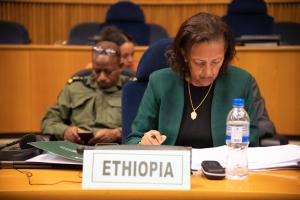
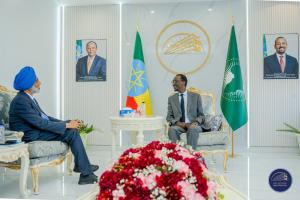
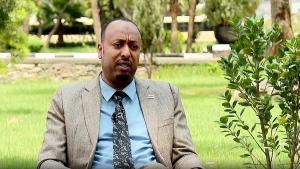
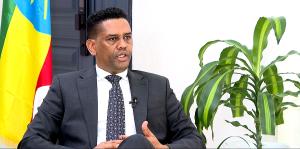
.jpg)




.jpg)

.jpg)

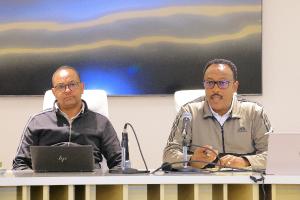
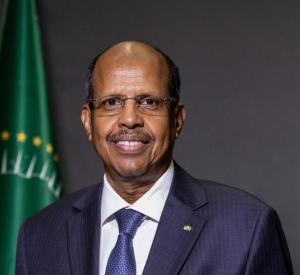
.jpg)

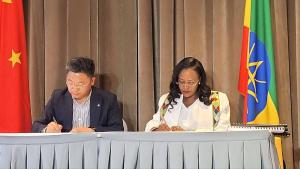
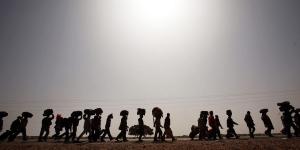
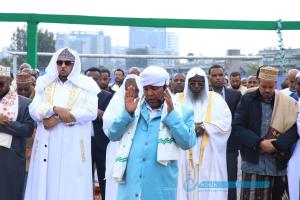


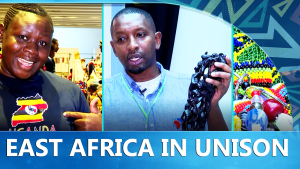
.png)
.png)
.jpg)
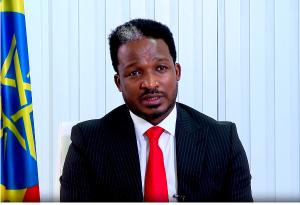
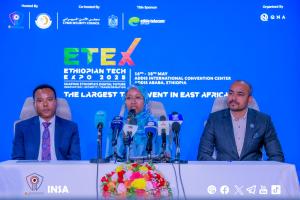
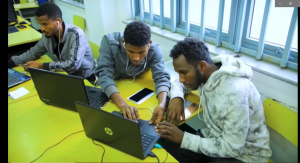



.jpg)
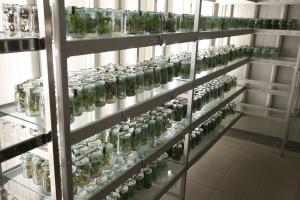
.png)
